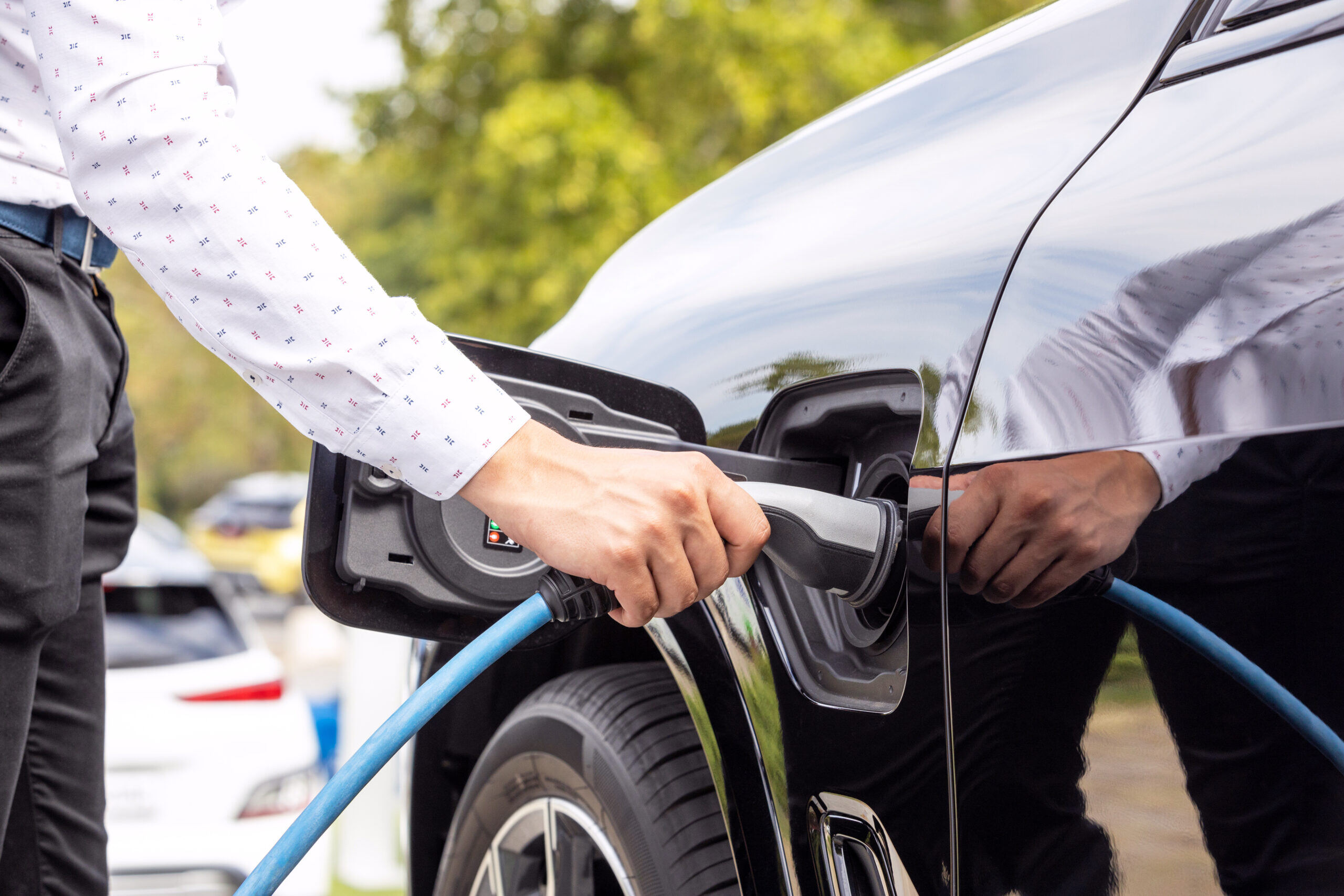Level 2 vs. DC Fast Chargers – Determining Your EV Charging Strategy
Read Time 4 mins | March 25, 2022 | Written by: Julia Segal

When it comes to charging your electric vehicle, there are two main types of chargers to use it generally comes down to Level 2 vs. DC Fast Chargers. So what is the difference?
EV Charging Speed
The main difference in Level 2 vs. DC Fast Chargers is the speed. Level 2 chargers are slower, taking up to ten hours to a full charge, where Direct Current fast chargers take 30 min to 1.5 hrs to a full charge. Here is a good breakdown of EV charging speed by Tom Moloughney that includes Level 1 EV chargers (which are almost exclusively used at home):
Level 1 Charging: 120-Volt
Connectors Used: J1772, Tesla
Charging Speed: 3 to 5 Miles Per Hour
Locations: Home, Workplace & Public
Level 2 Charging: 208-Volt to 240-Volt
Connectors Used: J1772, Tesla
Charging Speed: 12 to 80 Miles Per Hour
Locations: Home, Workplace & Public
Level 3 Charging: 400-Volt to 900-Volt (DC Fast Charge & Supercharging)
Connectors Used: Combined Charging System (Combo), CHAdeMO & Tesla
Charging Speed: 3 to 20 Miles Per Minute
Locations: Public
How Many EV Charging Stations Are There?
Want to find an electric car charging station? Then you’ll soon learn there is the difference in volume of Level 2 vs. DC Fast Chargers. Here is a breakdown according to the Alternative Fuels Data Center as of March 25th, 2022:
- Level 2 EV charging stations in North America – 47,436
- DCFC EV charging stations in North America – 7,282

Cost of Level 2 vs. DC Fast Charging
Charging with a Level 2 vs. DC Fast Charging
Another major difference is that a DC fast charger might cost ten times the price of a commercial Level 2 charging station! Why? the amount of energy it takes to power a DCFC EV charging station is pretty substantial. Utilities that charge by the kWh have to provider a much higher amount of energy to fast charge an electric car.
Charging an EV at home using a Level 2 EV charging station will cost approximately $6.00-10.00 for a full charge.
DC fast charging stations are designed to fill an EV battery to 80% in 20-40 minutes, and 100% in 60-90 minutes. Billing rates are determined by charging networks or site hosts and can vary from $0.10/kWh to over $1.00/kWh, with an average of $0.35/kWh in the United States. Using the average rate, a full charge can vary from $10.00 to $30.00 depending on the EV’s battery size.
Purchasing a Level 2 vs. DC Fast Charging
According to the EERE, the cost of a Level 2 single port unit ranges from $400 to $6,500, while a DC fast charger runs from $10,000 to $40,000. Installation costs vary greatly from site to site, with a ballpark range of $600 to $12,700 for Level 2, and $4,000 to $51,000 for DC fast charging.
Level 2 vs. DC Fast Charging Use Cases
Residential charging is either Level 1 (plug into a standard 120V wall outlet, VERY slow) or Level 2. There are several reasons for this that include:
Unfortunately not all EV owners can install a Level 2 charger in their place of residence and that is why utilities have EV charging station incentives and rebates available to help EV owners who are not able to charge their electric vehicles at home.
Deciding between Level 2 and DC fast chargers for your organization’s charging solution depends on the use case. Below are some examples:
Level 2 Charging Stations (longer charging periods):
- Apartments, Condos and Multi-Family
- Appeal to EV owners who would like to charger their EV overnight
- Office space
- Amenity, charging during work day. Especially valuable for workers who may not have access to a charger at home
- Retail / Mixed-Use Developments
- Encourage longer shopping/dining!
DC Fast Charging Stations (shorter charging periods):
- Quick highway stops for road trippers
- Rest areas where road trippers want to stop for about 30 minutes
- Convenience stores
- Meal/Drink stops for travelers
- Fast food
- Fast casual
- Convenience stores
- Coffee shops
- Retail
- Attract shoppers who need to run in and grab something quick
Sona Energy can help your organization or business understand the differences between Level 2 vs. DC fast chargers and evaluate which EV charging solution is right for you. We’ll guide you through each step of the process from the initial site audit through installation and ongoing service and maintenance. If you’re ready to make the switch to electric, contact us today!
